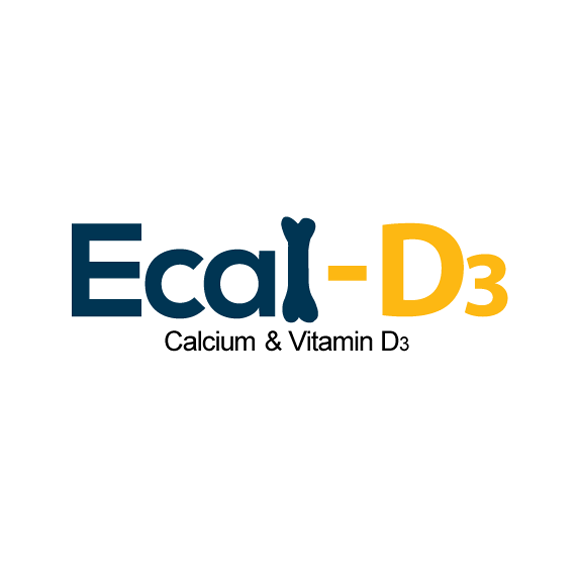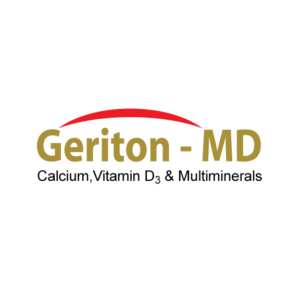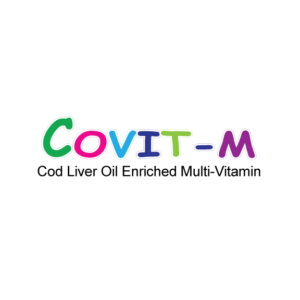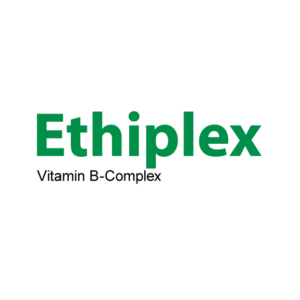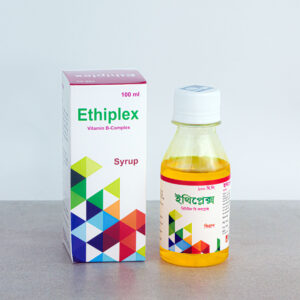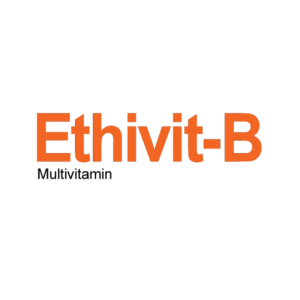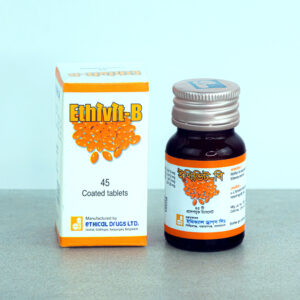ECAL D3® – Calcium Carbonate [Elemental source] + Vitamin D3
COMPOSITION
Ecal-D3® Tablet: Each film coated tablet contains Calcium Carbonate BP 1250 mg equivalent to 500 mg elemental Calcium and Vitamin D3, 200 IU as Cholecalciferol BP.
PHARMACOLOGY
This is the preparation of Calcium Carbonate and Vitamin D3 (Cholecalciferol). Calcium is necessary for many normal functions of our body, especially bone formation and maintenance. Vitamin D3 helps for the absorption & reabsorption of Calcium. Vitamin D3 also stimulates bone formation. Clinical studies showed that Calcium and Vitamin D3 all together helps in bone growth, and in prevention of osteoporosis & bone fracture.
INDICATION
Calcium is an essential element and plays vital role in the body. It helps to make body’s framework stronger by building bones. Vitamin D3 is needed for Calcium to be absorbed from the gut, and deficiency can lead to low Calcium levels and subsequent weakening of bones.
This is indicated for the following treatment:
1. Osteoporosis, Rickets, Osteomalacia, Tetany and secondary Hyperparathyroidism.
2. As supplement during pregnancy and lactation due to increased demand.
3. For prevention and treatment of Calcium and Vitamin D3 deficiency.
DOSAGE & ADMINISTRATION
Adults and children above 12 years of age:
2 tablets per day, preferably one tablet in the morning and one tablet in the evening with a full glass of water.
Children: Not recommended for children under 12 years.
SIDE EFFECT
The use of Calcium supplements may rarely causes mild gastrointestinal disturbances, such as constipation, flatulence, nausea, gastric pain, and diarrhea. Following administration of Vitamin D3 supplements, occasional skin rash has been reported. Hypercalciuria, and in rare cases, hypercalcaemia have been seen with long term treatment at high dosages.
PRECAUTION
Hypercalcaemia should particularly be avoided in digitalized patients. Patients with mild to moderate renal failure (commonly found in the elderly) hypercalciuria should be supervised carefully with periodic checks of urinary calcium excretion and plasma calcium levels.Urinary calcium excretion should also be measured in patients with a history of renal stones to exclude hypercalciuria.
CONTRAINDICATION
Hypersensitivity to any component of the product. Hypercalcaemia for example, as a result of hyperparathyroidism, vitamin D overdose, decalcifying tumors such as myeloma, bone metastases or sarcoidosis. Severe hypercalciuria, renal stones. Osteoporosis due to immobilization.
DRUG INTERACTION
The risk of hypercalcaemia should be considered in patients taking thiazide diuretics since these drugs can reduce urinary calcium excretion. Hypercalcaemia must be avoided in digitalized patients. Certain foods (e.g. those containing oxalic acid, phosphate or phytinic) may reduce the absorption of calcium.
Concomitant treatment with phenytoin or barbiturates can decrease the effect of vitamin D because of metabolic activation. Concomitant use of glucocorticoids can decrease the effect of vitamin D. The effects of digitalis and other cardiac glycosides may be accentuated with the oral administration of calcium combined with vitamin D. Strict medical supervision is needed and, if necessary monitoring of ECG and calcium. Calcium salts may reduce the absorption of thyroxine, biphosphonates, sodium fluoride, quinolone or tetracycline antibiotics or iron. It is advisable to allow a minimum period of four hours before taking the calcium.
OVERDOSE
The most serious consequence of acute or chronic overdose is hypercalcemia due to Vitamin D3 toxicity. Symptoms include nausea, vomiting and constipation. Chronic overdoses can lead to vascular and organ calcification as a result of hypercalcemia. Treatment should consist of stopping all intakes of Calcium and Vitamin D3 and rehydration.
USE IN PREGNANCY & LACTATION
It can be safely used during pregnancy and lactation, as Calcium and Vitamin D3 requirements are increased in these cases. However, you should only use this medicine after consulting your doctor.
STORAGE
Store below 30°C Temperature in a dry place. Keep away from light. Keep out of the reach of children.
PACKAGING
ECAL-D3® Tablet Pot : Each pot contains 15 tablets.
ECAL-D3® Tablet Pot : Each pot contains 30 tablets.

